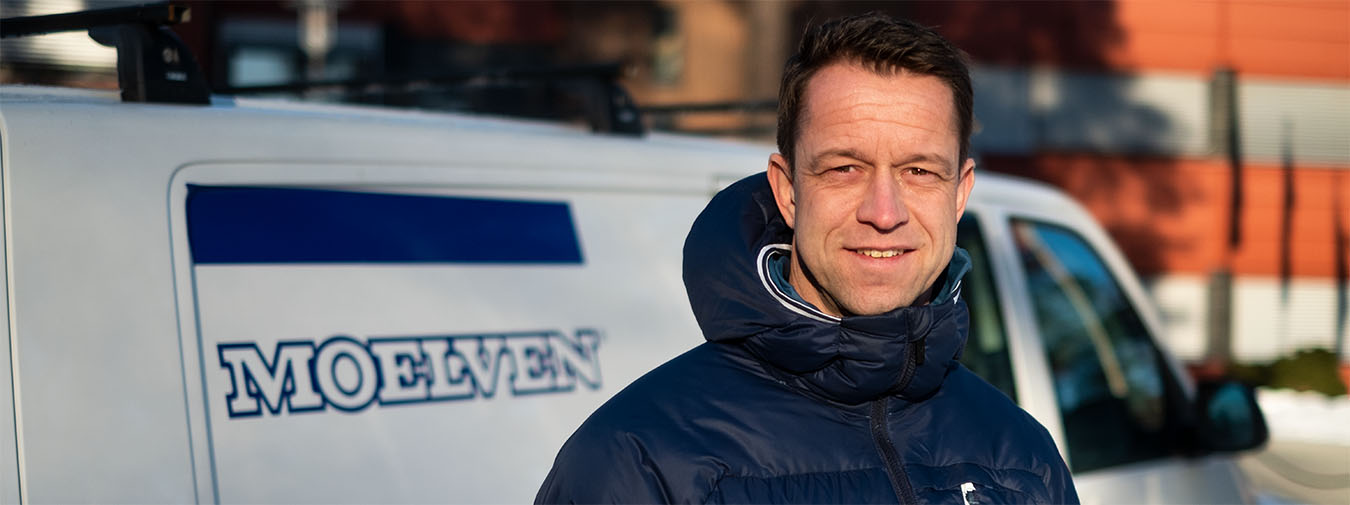Smart and larger purchases result in a better climate footprint. “We established a purchasing group at Moelven in 2020. The main purpose is to consolidate all of our agreements and establish new corporate agreements in areas that have a major impact on profitability and sustainability,” says Head of Purchasing for Building Systems, Thomas Hansen.
One of the most important areas we are currently working on new agreements for is waste management. Such an agreement would have an impact on the opportunities we have at Moelven to achieve our target of a sorting ratio of 90 per cent.
“We need waste management partners that can provide excellent advice on many types of waste. Moelven companies have different products and therefore greatly differing waste. We can see that we need to get better at sorting this waste to achieve our target of a sorting ratio of 90 per cent,” says Hansen.
The search for experienced and knowledgeable waste management companies in Norway and Sweden is already under way.
Fewer transport journeys and shorter distances
Transport is one of the major drivers behind CO2 emissions at Moelven. “We are considering whether to impose fees on orders under a certain sum in the corporate agreements to ensure that we properly plan purchases and thereby achieve fewer transport jobs,” Hansen says.
In and of itself, wood is a sustainable product, but ensuring fewer and smarter transport journeys would make Moelven products even more sustainable.
Buying primarily in Scandinavia
Moelven purchased external products and services for approximately NOK 7.4 billion in 2020. The majority of the Group’s external purchases are made with local or Scandinavian suppliers.
“Locally sourced purchases help minimise our total CO2 emissions. Our selection of suppliers and materials will always consist of an overall assessment of price, quality, access, sustainability and production-friendliness,” says Hansen.
For Moelven, it is important to deliver sustainable products to consumers, who are setting increasingly high requirements for the materials and their application.
“If we are to properly succeed in this work, we are reliant on everyone throughout the entire value chain being willing to pay a little more for greener and more sustainable products. But it is not always the case that products that are more sustainable cost more. We just have to dare to challenge existing purchasing patterns from a greener perspective. I find that there is an increasing focus on greener purchases at Moelven, but there is still some way to go on being clearer about how we will emphasise sustainable products and solutions in our product and supplier selections,” Hansen says.
Consolidating a larger proportion of Moelven’s purchases under corporate agreements is not only about achieving better prices and conditions for our individual companies. Corporate agreements also provide us with greater opportunity to exert an influence in the direction of greener purchases, both with regard to material selection, order sizes and number of transport journeys, as well as more sustainable production on the part of our suppliers.
Moelven and the UN Sustainable Development Goals
To ensure that our work on sustainability has clear direction and a global perspective, we have chosen to connect our four main areas to the UN’s Sustainable Development Goals. The article you’re now reading is linked to “Safeguarding natural resources” and sustainability goal #13 Climate action and #15 Life on land.
Read more about what the different goals mean to us here